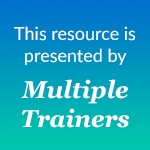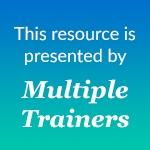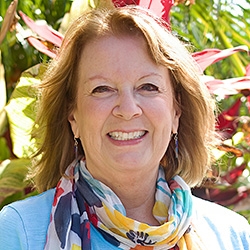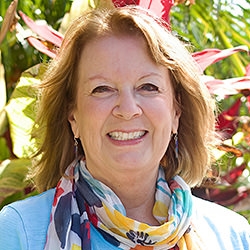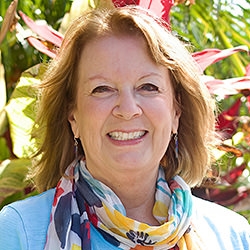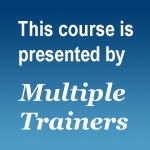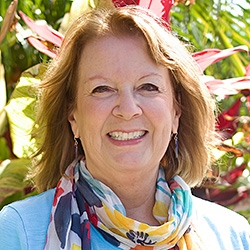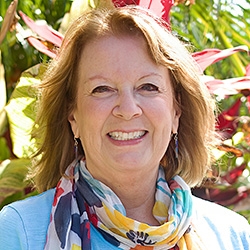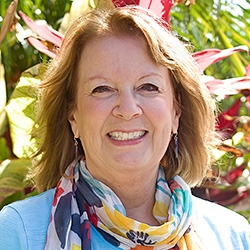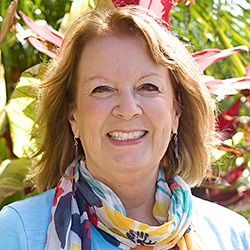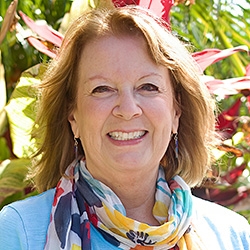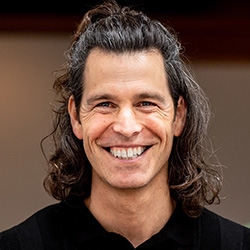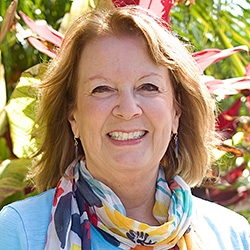

Search Results: meetings
-
Marshall Rosenberg suggests that there are two requests that are the most transformative to relationships, (1) What’s alive in both of us? and (2) What would make life more wonderful for both of us? This telecourse recording offers an easy-to-digest overview of how carefully crafted requests inspire joyful relationships.
-
Embody NVC consciousness and live each day in the fullness of compassion.
-
NVC Mingle is a fun group exercise to practice NVC principles and create quick connections with others.
-
If you’d like to bring more joy and fun into your workplace, listen to this trainer dialogue for NVC tips and tools from some of the leading experts in the industry.
-
Trainer Tip: Do you ever feel certain that other people see things the way you do, only to find out they don’t? Read on.
-
October always makes me think about Marshall Rosenberg, the founder of Nonviolent Communication. He was born October 6, 1934. If he were still alive today (he died February 7, 2015), he would be 89 years old!
-
Less than 2 weeks ago from the time I’m writing this letter, Hamas militants crossed from Gaza into Israel and killed more than 1,300 people, most of them civilians. Israel then retaliated and killed over 3,000 Gazans, most of them civilians. The death rate continues to increase every day.
-
Explore how NVC and the Enneagram deepen understanding of personality and foster connection.
-
Do you yearn to step forward in leadership, but know you're holding back? Clinical psychologist, organizational consultant, and speaker, Roxy Manning, PhD, shows us that more than external factors, its our internal beliefs and fears that provide the main barrier to moving forward. She does this by taking us through three myths of leadership, and weaves in anecdotes to illustrate how tapping our unique (often lesser recognized) qualities, can be the way forward we've been seeking. Learn ways to move forward, even if at first it appears that (1.) others can "do it better", (2.) you need to be more prepared, or even if (3.) the material you're conveying isn't so original (and has been used many times).
-
Trainer tip: Empathy, hearing feelings and needs behind someone’s words, can be incredibly healing -- and it can help us come to better understanding and resolution. Empathize with at least on person today. Read on for an example of applied empathy.
-
Trainer tip: Read on for the three stages of emotional maturity. In the third stage, we integrate the first two stages. We come to realize that everyone is responsible for their own feelings, but we also recognize our role if we do something that stimulates pain in another person. We also start to value the needs of everyone, rather than just one party's needs over the other.
-
Trainer tip: Do you have behavioral patterns that block intimacy? When we are feeling our most vulnerable, we often want intimacy but also tend to keep it at bay. Acknowledge your need for intimacy, and find people you can trust to love you as you are.
-
What exactly IS empathy? Empathy is the connection that happens between you and another when you experience your differences while holding on to underlying threads of commonality. In this recording, John will be sharing in-depth practices designed to give you the ability to speak and listen from a place of empathic presence, as well as a Self-Connection Practice specially formulated to help you come back to that empathy connection when you’ve gotten triggered into “fight-flight-freeze.”
-
When it comes to how you're achieving your goals, notice what you value. Is achievement coming at others' expense? Where is your sense of worth and validation derived from? Do other people in some way set the bar that you strive to surpass? Without comparing to other people, what does success mean to you? Read on for a related story.
-
- Deepen your capacity for self-acceptance and self-compassion
- Bring greater compassion to your relationships
- Increase your capacity for vulnerability and mourning
- Enhance your sense of trusting your own place in life, as well as your purpose
-
Trainer Tip: When have you responded in a way you didn’t want? How could you have handled that situation differently? What would have better met your needs? Try not to judge your behavior, but learn from it. Each time we review our actions, we can learn something, become more adept at new skills, and come closer to our ideal. We can do this with the learning curve of practicing translating people’s words into feelings and needs.
-
- Welcome unpleasant feelings and meet their flow in and around the body
- Discover how you can enjoy Anger as a beautiful life force
- Realize insecurity and depression as a door to the core of your humanity
- Know how to use fear to firmly connect to your life and strength
-
There are many polarizing issues we can resist and fight over. The word "resistance" can mean fighting against what we don’t agree with in counterproductive ways. It can also be the illusion and futility of mentally fighting against reality of 'what is'. But acceptance, non-resistance, of what is doesn’t mean powerless resignation. Another way to resist is to accept and love whole-heartedly, with empathy and care for the people doing the things we are resisting.
-
Trainer Tip: Do you sometimes feel lonely and disconnected from others? If so, look at how you may be participating in supporting that outcome and what you can do differently. For instance, if you want support or connection - but prioritize looking composed no matter how sad, hurt or angry you feel, you may shield yourself from authentically and vulnerably asking those things. Instead, make those requests.
-
Observation is the awareness of our sensory perceptions and thoughts, separate from evaluations and judgments. Feeling involves bodily sensations and emotions, distinct from "faux feelings" that mix thought and emotion. Needs encompass universal human requirements for survival and wellness, while thoughts and evaluations express needs. Requests are rooted in connection and invite true willingness, rather than demanding compliance.

Quick Links
Subscription Preferences
Stay In Touch!
Looking for ways to keep up with NVC Academy news, get special offers, free resources, or words of inspiration? Here are five ways to stay engaged:



